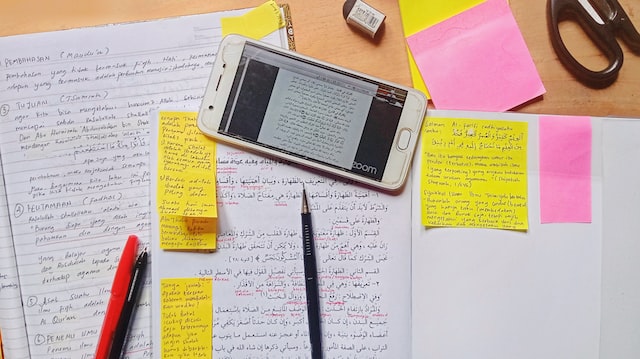A Cheating Scandal Rocked Atlanta. Efforts To Help Affected Students Still Fall Short
Until recently, hanging near the entrance of Dobbs Elementary School in Atlanta was a white banner that served as a reminder of a dark period in the school’s history. The banner proudly displayed test scores from the 2007-08 academic year, a year tarnished by a cheating scandal involving some of Dobbs’ educators. This scandal not only ruined the careers of many educators but also had a profound impact on the education of countless students.
This banner is symbolic of the ongoing challenges faced by the Atlanta Public Schools system. Despite efforts to move forward, the largest K-12 school cheating scandal in U.S. history continues to haunt the district and its community. The accusations of cheating have lingered over the city’s schools for nearly a decade. Out of the 11 former educators convicted of state racketeering charges, many are still appealing their convictions in hopes of clearing their names and records. Dana Evans, a former principal at Dobbs Elementary School, is one such educator who maintains her innocence and is fighting to appeal her conviction.
"I am determined to find a way to turn this situation into something positive," said Evans in an interview with Education Week. "Unfortunately, I have yet to discover the means to do so."
Evans is not alone in her struggle. Two programs intended to help students affected by the cheating scandal have failed to live up to expectations. The Atlanta Promise Academy, which aimed to assist dropouts affected by the scandal by providing GED classes or job training, has not been able to secure the necessary funding to launch. Similarly, the district’s $7.5 million program designed to repair the damage for current students impacted by the cheating has been largely ineffective. A recent report from Georgia State University revealed that tutoring and support services provided through this program came too little, too late. The report by economist Tim Sass showed that grades, attendance, and the number of classes passed were minimally affected. Additionally, participation in the program had no statistically significant impact on the likelihood of these students graduating from high school.
Even prior to these findings, some parents couldn’t shake the feeling that Atlanta was failing its children once again. Shawnna Hayes-Tavares, a district parent and member of the program’s advisory council, voiced her frustration with the lack of progress. "We can’t go back and regain those lost years for any of these children, including my own," she expressed.
The Atlanta cheating scandal gained national attention for the widespread corruption within the school system, as well as the aggressive criminal prosecution of the educators involved. The defendants were charged with violating the state’s Racketeer Influenced and Corrupt Organizations Act (RICO) due to the bonuses and raises awarded based on fraudulent test scores. The prosecution treated the case as a massive criminal conspiracy, often associated with organized crime. The investigation, initiated by then-Governor Sonny Perdue, resulted in the indictment of 35 Atlanta educators who were accused of altering students’ test answers under pressure to improve scores. Many educators reached plea agreements in exchange for cooperating with prosecutors, and the district’s former superintendent, Beverly Hall, was also indicted.
Judge Jerry W. Baxter, who presided over the Atlanta cheating case, stands firm in his defense of the severe sentences he handed down to those found guilty. He believes it was necessary to address the wrongdoing that had occurred and acknowledges that many children were deprived of the resources they should have had access to.
Despite criticism, both Judge Baxter and Howard, the Fulton County prosecutor, dismiss the notion that they were too harsh on the educators involved. Howard, who has three children who graduated from Atlanta’s public schools, emphasizes that the case was about stealing educational opportunities.
District Attorney Paul Howard has faced challenges in securing funding for the Atlanta Promise Academy, a program designed to help school dropouts who were negatively affected by the cheating scandal.
One of the individuals convicted in the case, Evans, maintains her innocence. She feels unjustly included in the scandal and believes that she was not seen as an individual. However, Judge Baxter, who had a personal connection to Evans as she had been a counselor at his children’s middle school, acknowledges her as a tragic figure. He acknowledges the respect she had earned and finds it difficult to see her in this situation.
Evans, who worked at Dobbs, a high-poverty school with persistently low test scores, claims that the cheating occurred without her knowledge. She argues that teachers colluded to keep her unaware of their unethical practices, motivated by a belief that their students could not succeed without assistance. Prosecutors did not directly implicate Evans in the cheating but argued that as the school’s leader, she failed to take sufficient action to stop the misconduct.
Judge Baxter sentenced Evans to five years in prison, with one year behind bars and four years of probation. Additionally, Evans, like others convicted in the case, was required to complete numerous community service hours, including tutoring inmates and school-aged children. In Judge Baxter’s eyes, this punishment was necessary as the cheating had a significant impact and denied children the resources they deserved.
Sheldon Garmon III and Nykira Ross, both seniors in Atlanta schools, are viewed as success stories within the district. Garmon ranks third in his class and is earning college credit through a dual-enrollment program, while Ross utilizes Target 2021 for SAT preparation and mentors younger students. They serve as examples of the Target 2021 initiative, demonstrating leadership and excellent performance in academics.
Celeste Boykin, a dedicated mother and mentor, fulfills multiple roles as a counselor and coach at the B.E.S.T Academy. She explains that the reason behind the need for Target 2021 support services is rarely brought up by students. Boykin emphasizes that these students were only in 2nd or 3rd grade at the time and have little recollection of the circumstances.
Boykin is one of the 18 student-support coaches stationed across the district and is based at The B.E.S.T. Academy. At this all-boys school, she serves as a motherly figure, mentor, counselor, and coach. Boykin meticulously monitors the progress and performance of numerous students, establishing daily check-ins with almost all of them. Her students thrive under the additional attention she provides, benefitting from tutoring sessions she arranges and receiving guidance on college admissions and financial aid. Boykin asserts that the reasons behind the need for extra support rarely come into question.
The students themselves confirm this. They recall more about the cartoons they watched and the games they played as 7- and 8-year-olds than they do about any high-stakes tests they took during that time. Brandon Alston, a junior at B.E.S.T. Academy and a Target 2021 student, credits the tutoring he receives for helping him maintain good grades in algebra and physics. Alston never pondered whether a cheating scandal that occurred nearly a decade ago could have had any impact on his education. He simply never thought about any negative consequences that may have resulted from it.
However, for years, Shawnna Hayes-Tavares has contemplated the potential ramifications. In a 2016 study conducted by Sass, an economist from Georgia State University, and his colleagues, the consequences of cheating on students in Atlanta and another undisclosed district were analyzed. The researchers discovered that schools with a higher percentage of black students or students living in poverty exhibited more signs of cheating, such as excessive changes from incorrect to correct answers on multiple-choice questions. On average, these students’ math and reading scores lagged behind their peers by half a year or more. The researchers also discovered preliminary evidence suggesting that students whose scores were manipulated by changing 10 or more answers were less likely to graduate from high school compared to those whose test scores remained unaltered. Hayes-Tavares emphasizes that pushing young students through the system only sets them up for future failure.
Howard, the county prosecutor, argues that the district is now in a better position due to the acknowledgment of the burdens they face and their incremental efforts to overcome them. However, it is uncertain whether all the available evidence supports this assertion.
Since the scandal came to light, the district has undergone significant changes. A new school board has been established, and Superintendent Meria Carstarphen, hired in 2014, has made it her mission to rebuild the district’s integrity. The Target 2021 initiative, launched during her tenure, was designed to restore confidence in the system. However, things have not gone as planned. Tim Sass, the Georgia State researcher, discovered significant flaws in the structure of the program. In addition, the majority of students who may have been affected by test score manipulation in 2009 are now in high school, making it difficult to address their academic weaknesses six years later, even with the best interventions in place. Sass also determined that many of the program’s goals cannot be easily measured, if at all. Carstarphen declined to be interviewed for this story. Prosecutors identified former Superintendent Beverly Hall as the mastermind behind the cheating scandal, although she vehemently denied this accusation. Hall, who retired after the scandal emerged in 2011, offered financial incentives to educators at schools that achieved specific targets. Unfortunately, her declining health prevented her from facing trial, and she passed away in March 2015.
Dobbs Elementary, along with other schools, ensures that their materials are securely stored and accessible to only one individual.
William Caritj, the chief accountability and information officer of Atlanta district, has actively supervised the transition of testing procedures to an online format in order to prevent any future instances of cheating.
When there is a significant increase in test scores, the district’s staff meticulously review reports. For instance, if the scores in a certain 4th-grade class experience a notable increase while no other classes in the school do, this can trigger an audit, according to Caritj. He emphasizes that they are confident in the validity of these gains, attributing them to the efforts made by the school(s), rather than any illicit means. Caritj asserts that the purpose of accountability is not punishment or exposing wrongdoing, but rather to foster the growth of schools and enhancement of teachers’ skills. At Dobbs Elementary, it remains uncertain whether this objective has been achieved, as overall test scores have significantly declined since implementing the new system. The previous accomplishments displayed by the school during the 2007-08 academic year, where they met 80 to 89 percent of the district’s achievement targets, have drastically dropped. Eight years later, only 12 percent of Dobbs’ students have successfully met all the altered state test standards, which is 20 percentage points lower than the state average.
After being sentenced, Evans endured a 14-day imprisonment and has since experienced many restless nights, apprehending the potential for further incarceration if her appeal is unsuccessful. Evans refutes the characterization presented in court and believes in the potential of all children to learn. She stresses the responsibility of educators to utilize all available resources to ensure the realization of this potential. Judge Baxter recognizes that this belief was at the core of the issue. He acknowledges that those implicated in these events were honorable individuals who genuinely cared. As the son of two educators, Baxter relates to their motive and expresses empathy towards their predicament, stating that he might have made the same choices if placed in similar circumstances.
Watch the related video as we delve into the appeals process of the eleven Atlanta educators who were convicted of conspiracy in one of the largest cheating scandals in the United States. This scandal significantly impacted numerous students. Hear from the key figures involved in the case, including an educator, the judge, the district attorney, and students who are on the verge of graduating.




0